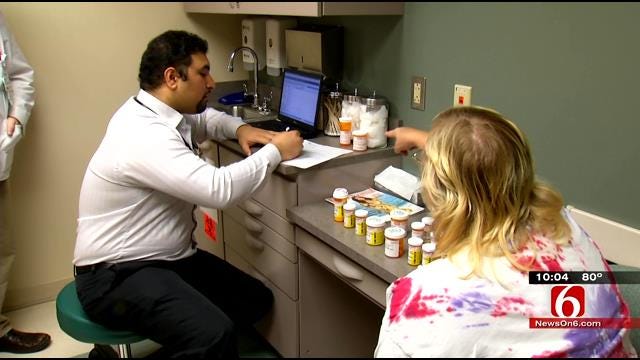Tulsa Health Department: General Public Has Minimal Risk Of Catching Ebola
<p>Doctors said the risk to the general public is very minimal, especially here in the U.S., but for those working in the medical field it's a little bit of a different story.</p><span id="selectionBoundary_1412219944988_3319172733463347" class="rangySelectionBoundary" style="line-height: 0; display: none;">?</span>Wednesday, October 1st 2014, 11:19 pm
Centers for Disease Control workers are in Dallas trying to prevent the Ebola virus from spreading. A man was quarantined in serious condition at a hospital in the area.
This is first time Ebola has been diagnosed in the U.S. the CDC Director, Dr. Tom Frieden, said his staff is doing everything possible to keep Americans safe.
First responders who carried the man into the hospital are being quarantined at home, though we're told they don't show any symptoms. Even the ambulance he rode it is being decontaminated.
With Dallas just a few hours from Tulsa, some have raised concerns on whether we could see a case here.
Doctors said the risk to the general public is very minimal, especially here in the U.S., but for those working in the medical field it's a little bit of a different story; they have a higher risk than most.
10/1/2014 Related Story: Tulsa Health Department Prepared To Deal With Ebola Virus
Medical workers are the ones that make their way towards those suffering and in need, and those workers dealing with Ebola in West Africa and now at Texas Health Presbyterian in Dallas, have a higher risk for contracting it.
"They're doing very invasive procedures so, they're touching the person, they're evaluating the person so they're always in very close contact with the person," said Epidemiologist Nicole Schlaefli.
According to the CDC, Ebola is not airborne and cannot be transmitted easily.
Symptoms include high fever that can get up to more than 105 degrees, headache, muscle aches, nausea and vomiting, but Schlaefli said they is a key indicator they look for as well.
"The hallmark symptom that we kind of look for are the ones that are, Ebola is a hemorrhagic disease, which means it's a virus that will get into your system and start to break down certain blood vessels and things so you'll tend to bruise easier and you may have some bleeding that is not normal," she said.
Those are abnormal symptoms that should be cause for concern, particularly for those who may have come into close contact with an infected person.
“I understand the worry people have, this is something that is not a well-known disease, it's definitely something that we're not that familiar with in the United States, but we do want everyone to realize the risk is minimal and we do have plans in place to take care of something such as of this nature,” Schlaefli said.
A local doctor who just returned from West Africa said even though his group was in a non-infected country, medical professionals have remained vigilant when traveling to parts of Africa that are infected.
More Like This
September 29th, 2024
September 17th, 2024
Top Headlines
December 10th, 2024
December 10th, 2024
December 10th, 2024
December 10th, 2024












